The agony of loving someone.
- Noorie

- Jan 23
- 30 min read
“It’s the time you spent on your rose that makes her unique in all the world.” - The Little Prince
So the Little Prince leaves the fox for his rose, the aviator for his rose, every metaphor for growing up for his rose, dies, all for his rose.
The fox - left behind, wandering golden fields and arbors stuffed with red petals, one curled into the next - sits, fox head tilted, flicking his ears, seeing the Little Prince everywhere, because the little prince tamed him. He changed with someone who’s no longer here.
The Little Prince is special because of its childlike profoundness, its potency, its message of the little, special love in this vast cosmic world. Of how easily we love as children, how we paint the world in our special things, and how we forget this easy love for our adult vices. Love, here, lies at the end of our issues, at the beginning of our lives.
But what of the fox? Sitting beneath the abhor of roses, resting in the golden field, sun glinting like his hair, the world marked by memories, by the special person who once beheld them.

What of the Little Prince, who cherishes his past love so much he died to return?
What of leaving it all behind? What of the imprints we take with us? What of the moments we forget, the markings of their laughter pressed into our skull, now strange shapes etched into a weirdly familiar ache?
What of our attachment? What if love can lead us to unfathomable pain, what then? What other options are there? They proclaim, voices ever so calm, smiling, righteous, ‘let go of those you love, don’t cling to them and let yourself grow strained in your clinging.’
Does this apply to the things we love? What of the stories, the plants, the crocheted hat your grandparent made, an extra lump on one side from when they lost count? The hyperfixations? Siblings and friends and the gray stuffed owl. Is it so wrong to love things? Is it so wrong to let them go?
What if I want to hide, you and me and every story and a collection of childhood dolls we never quite stopped loving, while our feelings rage outside? I don’t know if I should let myself believe those who promise enlightenment again, find the collection of loves disgusting again, love them too much to let them go again. Perhaps we can hide beneath a collection of old magnolia trees, a cozy sort of numb - like watching droplets trickle and play, racing each other and the adults are none the wiser. Before we go back outside - where nothing will ever be the same, where we’ll stand in front of the decision - we’ll comb through this knot of feelings, hopefully not tugging any thread too hard, not snapping anything, as gentle as we can, slowly, together, then we can go back and face everything else.
For a little while, we'll be safe here.
In essays, a structure exists to validate the other side’s view before claiming your own thesis near the end. For video essays you explore a thesis through multiple points, with the last one being a twist, ultimately ending with a more nuanced thesis.
All assume that there is ‘one right answer’. I don’t know. There’s a lot of different knots humanity thinks itself into, postulates assumed so they can stand on solid ground. In the end we struggle and strive toward an answer, some perpetual bliss, righteous enlightenment, in this life or another… and in searching I’ve lost sight of the searched-for. For what purpose is any of this? These questions? What do we hope to gain… something as fickle as a feeling? Something we’ll cling to, like anything else, resisting any change, destined to change, waiting and wanting and promising an improved future, until there’s nothing left to do except for wander, purposeless.
The stars along the path whisper wordless, unfathomable beauty.
I say this to mark my purpose here, my ‘ultimate thesis’. I don’t have answers. I don’t think there are answers. This is an exploration. Wandering. We’ll wander together… or, if you don’t want the metaphors to contradict - we’ll explore every inch of this sunflower patch, this moss-covered forest, this safe place where none of it matters, and see what constellations we can make, to find something special to make of the stars, even if our lines are only fiction.
I suppose the metaphors won’t make sense until they do. Silly words. I still don’t have a way to describe the comfort of the stars.
A more… concise way to say my purpose here… it’s to comfort. To explore the nuance and bring some shades of gray to the black and white. We’re using stories to explore philosophy, something kinder than righteousness. If self-help wants me to listen to it, then they better stop insulting the ignorant and proclaiming us the ones with the special knowledge, the ones who don’t waste our time like the others.
This could be utterly pointless, but I’m promising myself I’ll not edit this, as if I’m just rambling, post it and let it be. (so Link Click core).
Spoilers for the following: Avatar the Last Airbender. The Summer Hikaru Died. Link Click. The Girl from the Other Side.
Avatar the Last Airbender
Avatar the Last Airbender explores themes of connection to one’s past, and those in one’s present. Aang, who’s - as the name implies - the last airbender, grapples with the 100 year war requiring him to become the avatar - a mature symbol of power, one who can end the war, one who needs to end the war with violence. The asks of the world require him to mature quickly, leave the childish pleasures of fun and attachment to friends behind, along with the peaceful nature of his culture. With one person’s death, so many more will live.
So many more will live, he knows, he knows, yet he cannot harm another person. (Willingly, at least).
To run away or face responsibility, this is the dilemma Aang faces. To continue forward, to relinquish every friend, loved one, and cherished ideal behind for the sake of bringing some greater peace to the world.
And despite the bending and the quests of global proportions, the school systems and the politicians - all smiles and crinkled eyes - tell the children to save a dying world, not with their loves or interests, but appeasing institutions for future security. Is that not the same thing?
The people we love, the interests we have, ancillary, secondary. Try to find a single person that genuinely likes a school subject. Find someone that doesn’t feel the weight of the world, that doesn’t try to escape from it all.
Aang meets a guru near the end of the third season, while he’s grappling with the weight of forgoing his ideals for the sake of killing the one who started all his strife. This guru tells Aang that to achieve his highest self, he must think of those he cares about, all the newfound friends and cherished memories…
… and let them go.
It’s for the sake of the world. The world who needed him, who still needs him, who’s words of pain and anguish at the hand of an avatar’s absence burden Aang’s psyche in increasing intervals as the series continues. It’s everything or his love for Katara.
He makes his choice.
He chooses his love for Katara over gaining a full, detached sense of power.
Yet he achieves everything. He still defeats the Fire Lord, stops the war, and has his avatar state. As far as the narrative is concerned, he clung to all his attachments and loves, and the world ended up better for it.
Forgive me for any discrepancies, it’s been a while since I’ve seen the show.
But not everyone can hold onto someone like that and still get a happy ending. Even here, in this world, if we choose our own interests and loves over something ‘more important’, like scholarly or business endeavors, like power or achievements, we’ll pay for it with our future.
The Summer Hikaru Died
Cicadas buzz, a lulling melody that grows lazier with each ebb and flow as the bugs’ voices, infesting his ears, grow sluggish. Their song drowns in the blearing heat. They take shelter on the shop's bench, fitted between rows of gacha machines - painted toys with smiles too wide and eyes too dead - and the door - the fans’ breeze only a whisper brushing his cheek. It offers some relief. The rhythmic ‘drip, drip, drip’ of melting popsicles, a sticky sweet, the smell of artificial flavoring tickling his nose as it punctures the sun-drenched air, as it drips rivulets down his fingers, watermelon, no seeds in sight. The sun glitters over the half-liquid popsicle, dripping down his arms, over his white hair, the smile crinkling his eyes. The grin permanently painted on his face.
He looks so very much like Hikaru.
He is not Hikaru.

We’re getting an anime guys! (I haven’t been active in the Summer Hikaru Died fandom at all… you all are letting everyone enjoy this amazing story right? Right???)
The Summer Hikaru Died portrays the fear of being queer in a conservative town through horror and paranormal activity. (It’s one of those stories that portrays the dread and constant fear of knowing that everyone would hate you or worse if they found out the truth. As I’m writing this I have family members using slurs to denounce queerness in shows so… yes it rings true for me, a very special story.) It also explores the idea of what makes someone who they are. If a replacement walked along, with the same mannerisms, same interests, laughs, and quirks, would they be the same person?
Hikaru, Yoshiki’s most cherished person, embarks on a trip to a mountain and returns… different. Yoshiki knows, from the very first chapter he knows something is off with friend - he’s dead. He’s supposed to be dead. Yoshiki saw Hikaru dead on the mountain, half buried in leaves and dirt, cold and covered in blood.

But this entity seems as if Hikaru simply returned after a long trip - a perfect copy. Same mannerisms, same jokes and favorite foods. He even remembers their fear of eating watermelon seeds when they were little - the silly childhood fear that they’d turn into a ‘watermelon man and die if they ate watermelon seeds, something shared between Hikaru and Yoshiki alone.
And this new entity, apparently.
Yoshiki’s pain and confusion - not only with the situation, but his own feelings - appear in brilliantly detailed panels. The most props in the world to Mokumokuren for how much emotion comes across on the pages.
Yoshiki doesn’t know why he’s okay with this. Why he’ll keep this new version of Hikaru by his side even if it isn’t actually Hikaru.
Perhaps because it’s a perfect copy.
This Hikaru is not a perfect copy.
The narrative continues, and the disparities between this new entity and Hikaru emerge - the entity likes icy pops more than watermelon, likes cats more than Hikaru, likes studying and movies more than Hikaru, has feelings influenced yet wholeheartedly and entirely his own. These feelings are his, not Hikaru’s. His, the monster’s feelings.
This entity isn’t Hikaru.

This entity is dangerous. It could kill Yoshiki, his friends, family, doom the entire village to supernatural violence, the impurities that haunt their village. And Yoshiki doesn’t let go.
Yoshiki clings to his best friend, the one salvation he had in that town. Even as ‘Hikaru’ becomes dangerous, to Yoshiki, to others, to the village, even as the mystery behind this entity becomes more and more tied to the dark past of their village… Yoshiki still protects ‘Hikaru’. He doesn’t even know why.
Not until chapter 27.

He realizes it's a selfish desire. In a town where he ‘finds it hard to breathe’, where he always has to hide who he is, Hikaru, even the idea of Hikaru, some sort of person or entity by his side, ostracized with him, provides a sense of comfort. He’ll forgo his sense of morality, endanger everyone else he holds dear, and his own sense of self preservation, for the sake of keeping ‘Hikaru’ by his side, hoping he can be saved from the town’s suffocation if he saves Hikaru too.
He simply doesn’t want to be alone.
Narratively, this is such an interesting concept, interesting characterization, and one of the best depictions of conflicting, abstract emotions. I am not singing praises of ‘The Summer Hikaru Died’ enough. It’s an amazing story, and it’s of similar narrative standing to me as Link Click, which is saying something given… how much I obsess over that show.
But what if one were to look at Yoshiki’s decision to choose Hikaru over everyone and ask the question… is it the decision that will bring Yoshiki the most joy?
No. The answer is no. Choosing Hikaru means dooming himself to a road of possible destruction and facilitating dangerous entity's threats. Yoshiki is aware of this. He wants to avoid the pain of losing Hikaru. Of being alone in that village. Of having to let go of the person who made living in that place bearable. It’s too early in the story, and I haven’t reread it enough to see which tragedy the Summer Hikaru Died choses. Whether it will proclaim the benefit of letting people go, moving on, or risk the village for the sake of Hikaru, painting a spotlight on the fear and doomed nature of children deemed dangerous . Either way, the story doesn’t pander to one side or the other, rather it presents Yoshiki’s decision as neutral, morally ambiguous but entirely in character. Either way, Yoshiki still decides to hold onto Hikaru.
Either way, holding on to someone or something still causes Yoshiki pain.
So is it a bad thing to love people….?
It shouldn’t be. It is. It’s a selfish, painful thing- to choose a person over everyone’s wellbeing, over your wellbeing…
Maybe.
Maybe if we simply control every factor that could take them away from us, we can still keep them around, maybe we don’t care what happens to the world, what happens to us, they just need to be safe.
We’re fully aware this is a selfish thing. But what does it matter? As long as they’re safe.
Link Click
He smiles. Blood a phantom stain on his face, now washed in the dying light of a late-afternoon sun, dark brown hair lined in gold. He smiles. A soft expression, not so wide as the grins he gives so easily, over stray cats and silly photos and soggy noodles; this one is something small and bright just for him.
Cheng Xiaoshi smiles, rises to leave, and Lu Guang grabs his hand.
It’s so, so warm.
He’s okay.
I will never not talk about this show.
Link Click is a Chinese Donghua that I regularly go insane over. I’ll mainly talk about the first season and the Yingdu arc… mostly because I don’t have access to the second season, but I will find a way to watch it again, even if I have to break the stars from the sky.
It follows Cheng Xiaoshi - who can dive back into photos and experience the next 12 hours as the one who took the picture - and Lu Guang, who can see the events within the next 12 hours and tells Cheng Xiaoshi the best path forward. They take on clients who want information or reconciliation from the past, and every time they ‘dive back in time’, Cheng Xiaoshi’s feelings and hyperempathy sweep him into a strong desire to give those he ‘possesses’ a perfect past, as Lu Guang advises against it. (Qiao Ling is also our queen but sadly she doesn’t get as much screen time until season two. Her character is better suited for talking about avoidance and regret… Jesper from Six of Crows would be in there as well.)

Cheng Xiaoshi’s parents left him when he was young - all of a sudden, no reason or warning - and he never let go of them. Pretty much everyone ‘left’ him after that. They all betrayed him in one way or another. His neighbors talked about him like a burden to be passed around, his classmates whispered behind his back at best and made fun of him at worst. The world and everyone in it moved on from that moment, and from that moment, Cheng Xiaoshi grew older, his parents showed less and less signs of returning, the film of his life developed more frames without his parents than with them…

… but Cheng Xiaoshi, fundamentally, is a hopeful person.
He’s a hopeful person who directs his hopes to the past, interweaves his hope with his longing for the past to change. He wants to restore the past he lost, make it perfect and happy and bright so he doesn’t have to face the darkness in their absence all alone.
Each of their clients’ underlying struggles and pains reflects a part of Cheng Xiaoshi’s own. Emma represents how Cheng Xiaoshi misses his parents, how loneliness and pain and longing for his previous life fills the days after they left; Chen Xiao represents the darkness, the wanting to change the past to save everyone and only being left with regret and mourning… but Yu Xia lost her way and found her path to Lin Zhen again; Doudou’s father looked for three years, three long years of plastering posters and partaking in every ritual, all to find his son again; in being Xu Shanshan and in realizing Emma’s fate, Cheng Xiaoshi sees that despite how hopeless the past may seem, there will always be those in the present that care for those around them and light the future aglow.

Cheng Xiaoshi tends to notice peoples’ hardships, pains, or flaws; he emphasizes with the parts of their past that aren’t perfect. Through the dives, he sees peoples’ relationships improving because of their efforts, that despite their past, everyone works towards a better future. It helps him move on from his own burdens. Qiao Ling and Lu Guang are the people who care for him, the ones who shine light into his life. He might have lost his parents, but that doesn’t mean he has to fix them to have a happy life.

~Possessed Qiao Ling proceeds to stab Lu Guang~
Lu Guang dies. Cheng Xiaoshi, handcuffed to a table, sobs, a reverie of all the little things, all the mundane moments he’s learned to cherish so much flood his brain - the orange cat on the counter, the soggy noodles, the re-cleaned camera and the random self-conscious pictures. He goes quiet and listless, staring at a photo taken two years ago - a warm yellow lighting his face in a lifeless sea of washed out blue - and considers diving back in time to save Lu Guang.

He doesn’t.
Cheng Xiaoshi wouldn’t have considered that before season one… but after? He lets it be.
Lu Guang wouldn’t want to change the past…
… except that’s what Lu Guang’s been doing this whole time.
Lu Guang - being the ‘future focused’ one in this time travel show - gets the doomed future of the pair. Cheng Xiaoshi dies. Lu Guang can’t live without him. He breaks all his own rules and changes the past, chasing Cheng Xiaoshi ‘to the end of the world, just to say [his] name once more’. Lu Guang frets. He has nightmares and mourns for someone who sits right beside him. A dead body and pools of blood taint every happy memory, tainting Cheng XIaoshi’s every smile and antic…

This really does have ties with the Summer Hikaru Died, doesn’t it?
On tumblr, people proclaim why Cheng Xiaoshi has to die. No matter how long Lu Guang keeps Cheng Xiaoshi alive, he’ll still live in constant paranoia of losing him. It begs the question of whether trying to save Cheng Xiaoshi is worth it.
The themes of the show itself say no. ‘Past or future, let it be’.
So Cheng Xiaoshi will die. Permanently. It will be painful and I’ll probably cry… but no matter the pain of the past or the horrors of the future, there will be those in the present that help us to the light… that’s the point, isn’t it?
To Cheng Xiaoshi, his parents meant a perfect past, so he had to let what they meant go in order to appreciate those in his present.
To Lu Guang, Cheng Xiaoshi is hope and seeing the best in people, in the world, despite all the things wrong in it… and unless Link Click proves me wrong and keeps Cheng Xiaoshi alive - I hope they do - Lu Guang will need to let him go.

But maybe it’s just them that’s doomed. Lu Guang and Cheng Xiaoshi and Hikaru and Yoshiki and Till and Ivan and Gojo and WHY ARE THERE SO MANY OF THEM?!
Maybe it’s just a curse - anyone with a white and a black color scheme is doomed to suffer.
Case in point:
The Girl from the Other Side
Apple pie cools on the windowsill. Nutmeg and cinnamon and the barest dash of cardamon. Tucked beneath the plate, covered in doodles of flowers, crinkled edges and blots of scribbled out mistakes, pages rustle in the gentle breeze. The sun sets, lazy orange light casting the tea set and its purple-paint fingerprints aglow. Shiva sleeps in a cozy bundle, and Teacher closes the worn cover of the storybook, placing it on her bedside table. He retreats to his study, reading…
Fretting…
Worrying about the shrinking safety each new home offers.

The Girl from the Other Side is a melancholy, contemplative tale about a world where if an outsider - a blackened, deformed monster of a being - touches an insider - a human being kept safe within the walls of their medieval-kingdom-like society - then the curse spreads and they too transform into an outsider. Insiders will burn entire cities down and stop at nothing, not even moral boundaries, to find a cure and end it all.
Shiva is a girl deemed cursed, although she shows no signs of it, so an outsider - who remembers bits and pieces of who he was, who teeters on the edge of losing himself entirely - named ‘Teacher’ cares for her, and attempts to keep her safe in their cabin nestled in mossy hills covered in wildflowers…an outside world, empty and dead.
Teacher spends the manga protecting Shiva from the truth that her Auntie abandoned her, from the danger of other insiders, from the threat of death that they pose, that other outsiders pose - he goes feral and axes an outsider who dares touches her. It's great.
But it also weighs on him, trying to keep a child safe in a world that wants her dead. It burdens his mind worrying over her safety, blaming himself for any harm that befalls her, fearing the day he Shiva no longer needs him.
Teacher represents the painful side of loving someone. The constant fear. The overthinking. The constant expectations he puts on himself to preserve Shiva’s childlike joy when no one can protect her from the horrors of the world.
Even Shiva notices Teacher’s pain. She - small enough to believe she knows enough to navigate the world - knows Teacher becomes reclusive if he’s worried, so she takes it upon herself to help him. Do they get a happy ending?
It’s vague.

The Girl from the Other Side presents the rules of the world, subverts them, weaves its world in characters, slowly dying in these quiet, peaceful places… and offers something sweet, something apple-flavored cinnamon pies and breeze upon mossy hills… honestly this story encapsulates a sort of peace reminiscent of Freiren and the Little Prince and the quiet moments of childhood spent with no particular cares or fears, baking with your parents or picking flowers with your friends or watching snow fall on the little mossy trees you made with your siblings.
It’s those special moments that the Girl from the Other Side cherishes, that the Summer Hikaru Died cherishes, that Link Click cherishes.
And they all must let the others go. They all must live alone after the other dies.
…. And what are they to do afterwards?
Freiren
Shooting stars. Arcs of light etching silver-purple glow into the black expanse. Once in fifty years. Once, only once, they’ll see it here - among the mossy stones encircling them, the mountains reaching like giant’s fingertips, streaming through the sea of traveling stars. “It’s beautiful.”
She’ll come here again, on her own. Then she’ll wonder why the stars seem to pass over her head without a second thought. Here, now, each glow winks into existence just for them, only for them, twinkling in the other’s eyes, before they blink, and they’re gone. The sky ends its show with a flourish of darkness, the glowing residue dripping into the mountains and disappearing for another fifty years, leaving the four in emptiness.
Fririen is a near-immortal elf. She’s lived since mages of fairy tales walked the earth. She’s lived since extinct flowers bloomed and common magic posed unconquerable threats. She lived before her party members - Heiter the priest, Eisen the dwarf and Himmel the hero - were born, and she lives long after they die.
Himmel the Hero dies first.

To Frieren, she only knew Himmel for ten years, what meaning did that have, how could ten years in the face of over a thousand change anything about her?
It does. For some strange reason those ten years - only ten years - meant something so great to her that it leaves her regretful. She regrets that she only spent ten years with Himmel and Hieter and Eisen, that she never truly knew them, not in the way they knew her. The others knew Frieren’s favorite foods and experiences she would like and that she mourned and experienced life in her way. In return, she left for fifty years and never learned all the intricacies and traits that made Himmel, Himmel.
At least, that’s what she thinks.
(A little note - I’ve only read the first volume so far, please excuse any thematic discrepancies!)

Friren’s lived for over a thousand years. To her, shooting stars that arrive once every fifty years occur pretty often, and the world develops fast enough for her to simply wait for magic to get better. Life is a sense of comfortable monotony. She can miss every single sunrise because there’s nothing so special about it that warrants waking up early. (Honestly, same Frieren. Don’t give into the morning person’s doctrine.) Nothing is ‘special’ to her, not in the way things are special to the short-lived. In the impermanence, not of the world, but of people’s experience of the world, there’s fragility and value. There’s only so long one can see the sunrise before they die after all. Frieren doesn’t have that. The world is impermanent in comparison to her - she’ll see shooting stars hundreds of times in her lifetime - and she busies herself with learning, casually, for the sake of it, about the world and the magic within it.
That is, until she thinks the others would enjoy the shooting stars better if they went further into the countryside, until the extinct flowers grew in Himmel’s hometown, until Eisen enjoyed sour grapes best, until Fern liked that Freiren made the effort to get to know her better.
What would a sunset mean to someone who thinks it's nothing special?
To Frieren, it means Fern’s smile.
Frieren changed because she began to see the world through human impermanence, through human fragility, through the human experience of only seeing shooting stars so many times before they die.
That’s different from clinging to the memory of someone. It’s different from resisting the change time demands of relationships, of knowledge and experience and memories and our sense of purpose, of self and of others and of our place in the universe.
It’s ascribing meaning to golden fields and shooting stars and sunrises and extinct flowers and basketball and noodles and photographs and apple pie and flower crowns and watermelon and summer cicadas. None of those inherently hold meaning. None of those have to hold any meaning to anyone. To us, they do. They meant something to someone who meant everything to us.
To me, that seems kinder. Kinder to those who leave us, kinder to an ever changing universe, kinder to ourselves, who can’t hold onto something without bleeding dry.
In the time past their presence, the colors that composed them seep into our world’s vibrance.
That’s the difference.
(Is it obvious I’m trying to grasp something I don’t have the words to describe?)
The Land of the Fallen Fairies
Sitara sits next to me, leaning on faer arms. “Tell me something about yourself but say it normally.”
“I value a narrator most in storytelling, for its narrators that tell us, the viewers, what we need to see, show us what we need to what, and weave a meaning from reality, one that I wouldn’t have known otherwise. But if I’m a narrator, weaving the world so it means something to me, yet I tell it to no one. Does that still make me a narrator? .. And it doesn’t matter whether the answer is yes or no. I consider myself a narrator, and I value a narrator most, myself. How self-centered is that?”
Sitara flicks faer ears. “That was not normally.”

(Yes I’m talking about my own story as if it were just one of the ones in this video essay… I thought it would be cool but now I’m not sure if it seems a tad contrived and… self-promotional. Alas. I write stuff! Ta da! Here’s stuff!
Also, I now realize that if I'd written about a different character, it would've fit better BUT I"VE WORKED ON THIS FOR TOO LONG HERE WE GO:)
Anuli is the protagonist for the Land of the Fallen Fairies. Technically. By all accounts Kamari would make for a better protagonist. Given that Anuli spends most of faer POV thinking about what escapades bumblebees get up to and talking to the fungi nestled in dandelion roots. Really, fae does nothing of importance, all fae does is sit in one spot and daydream all day, similar to those over-dramatic documentaries where they narrate epics over random animal videos. All Anuli does is twirl faer antennae around faer fingers, waiting for Kamari to return as fae sits beneath Kamari’s magnolia tree. All this lore I accidentally made up and Anuli does nothing with it.
Kamari makes for a better protagonist. Anuli is aware of this; fae even calls Kamari ‘the protagonist’ in faer thoughts. Kamari points out pictures in the clouds and crafts lilting wind chimes for Anuli’s nightmares. Kamari lifts Anuli as they twirl in the rain so Anuli doesn’t trip over faer tether. Kamari pats Anuli’s head to make faer scalp less itchy and almost memorized the names for Anuli’s bumblebee collection - even if fae did accidentally knock them out of their perfect line - and Kamari protected Anuli from the cold with mossy blankets and fed a raven and woke Anuli early every morning to watch the fledglings grow and listens to all of Anuli’s stories, even if Kamari returns to faer magnolia tree covered in blood and…
… dying, apparently?

Kamari’s still the one who makes for the best protagonist.
Which makes Ankh, otherwise known as ‘the one with eyes’, an almost-villain. In fact, the only reason Ankh isn’t a villain is because fae loves Kamari.
And Ankh hates Anuli for some reason. Weird. How could someone love the protagonist and hate the narrator?
Supposedly because Anuli doesn’t show that fae cares. Anuli keeps telling a story about a daytime moon even as Kamari’s breathing slows and pools of faer blood drench Anuli’s hands.
But see, it’s a simple misunderstanding. Anuli doesn’t know how to stop Kamari from dying. Anuli’s the narrator! What can fae do to help the protagonist…. And besides, if Anuli even touches the possibility of Kamari dying, it feels like Anuli faerself is dying. If Anuli starts dying as well then no one will be of any help, and Kamari likes stories about the moon. It’s the most Anuli can offer.

And what’s the point of any of that - all this debate over how to cherish someone - if in the end no one sees you any different?
“You’re so in love with your own ideas that you haven’t spared any love for anyone else”
Later on - in a part of the story I haven’t written yet… alas… writing takes a long time - Anuli leaves faer entire world behind: the magnolia tree, the bumblebees and the raven and the tether and that special, special place. Yes, Kamari still walks beside faer. (Ankh too but who cares about Ankh?)
But Kamari’s hurting, not dying. But hurting. Hurting and not-angry but should-be-angry but when fae is angry it hurts and hurts so much and somethings wrong; everything is wrong, wrong, wrong and all Anuli wants is to go back home.
Home. The dandelions wished to hold the sun, to grow and to grow far beyond their reaches. They would claim the entire world as theirs just as easily as they’d offer a little Anuli to take part in their visions of grandeur. Anuli - a creature of clouds and rain and overcast temperatures, a dryad who melts and suffers beneath the sun’s rays - could hold the sun with the dandelions, without burning faer hands. It feels like the precipice of achievement, and the feeling stays until it’s left behind. The dandelions only grow in the magnolia hollow. When they leave, any ‘yay we did it!’ from Kamari leaves a dull sting. There’s no salvation and no place of triumph without those golden puffs of flower.

Home. The evenings watching the sunlight wane in languid rays spilled between the canopy, catching the light of mist caught in spider’s webs, silver threads spun with gentle precision. Kamari threads little dolls together like this, bundles of moss and lichen tied away with an old blade of grass. A giant green bumblebee that Anuli hugs to self-soothe. Fae left it behind. It’s okay. What soothing does a villain deserve?
Home. Where mossy quilts nest them from the cold, where a collection of bumblebees sits safe from rotting, where the old nest of raven fledglings holds shiny stones, where Kamari’s wind chime lilts gentle melodies… to leave those behind is to leave the pieces of Anuli’s life with them.
Anuli realizes then - fae’s been a villain, a parasite who’s happiness causes others pain.
That’s the trouble with being a narrator, with being a person that overthinks and finds connections between every single thing, weaving them into a tapestry that tangles our arms and legs within it.
There’s lots of places to tear.
It’s not necessarily a bad thing. It isn’t a bad thing. If I ‘stop overthinking’ it means something is very very wrong.
So perhaps these internal constructions with no instructions require definitions of their own.
What if I let my thoughts churn in the background? What if I act as if my internal world has the same distance to me as the external world, putting the sensations in the same weird place of pleasure and pain? What if I care a lot and actively verbalize that and actively show it in the only way I know how and what if I’m ‘meant’ to fill in those gaps that others don’t fill?
What if I stop trying to make sure I ‘love someone properly’? Even for my plants, why is it that ‘plants thrive better if their caretaker loves them’? What if I don’t know what love feels like? I have no one to cross-reference feelings with and I’ll never get to. So what if every single feeling I have is ‘the right one to feel in that moment’? What if melting, overheating is a weird form of comfort? I can make it mean whatever I want it to mean. (Stay healthy.. And I don’t know what I’m talking about but this has helped me… you can label that temporary-feeling-pain as a sensation, like a rough stone that’s strangely satisfying to run your fingers over).

… I confused myself again writing this. I suppose that’s the issue with trying to weave your own story.
What I’m trying to say here is that the special importance and meaning that others give you, the ones you color your life with… with those same colors you can mix and paint whatever colors you want, especially on those internal feelings that never seem to tame themselves. I feel that relationships - both fictional and real life - of any sort, whether that be platonic, familial, 'partners in crime', or even between a person and a concept they cherish, don't really have labels that meet up to what they are that well. I like to think that's part of the reason we tell stories, to give context and meaning to what would otherwise be simple labels. (And I like to imagine that labels are colors or flavors - supplementary, not necessary, something that has to go and meet your reality rather than you having to mold yourself to fit that. And most likely the labels still aren't going to fit just right. Perhaps that's part of the reason we use metaphors for when we romanticize romantic relationships. Words can never really do something justice.)
See the thing with the Little Prince is that the fox lets go.
The Little Prince relinquishes his body, all of the worries and woes of the adults.
What’s really important, the calls of worldly expectations or cherished loves I can hold in the palm of my hands?
The Little Prince answers, in its poignant way, more impactful than I can hope to explain here, that we become responsible for those we’ve spent time with. It explains how we love others, the world through the other’s eyes. That we make those we cherish unique in all the world. That we lose sight of the little, special things that glitter like a rising sun over a night’s rainy dreaming, in favor of numbers, scholarly achievements, power and vanity. The things we do for others in turn enliven ourselves. Makes the world’s grain fields, of which we have no use for, oh-so-happy things because they are the same color as his hair. Among the stars lives a rose, and because there lives the rose he loves so much, it’s as if all the stars shine with her resplendence. It’s important because of the love we gave it. It’s a giving sort of thing I suppose. To cherish on our own merits. To let go if the other wishes to let go, with the belief that we’ll meet each other again someday… if that’s best for us.
As of writing this…over the course of a month now? Still nowhere near done… and I thought I was a writer. I watched Euro Brady’s playthrough of ‘Save the Princess’, a game about choices and how those choices craft us into the people we are, and how infinitesimal and not-us those crafted people are. That in the end we are change itself and within our multitudes contains death but also so much life and purpose and meaning. And it’s ‘meaning’ that made everything click. (LINK CLIC-)
We think ourselves stuck in this one perspective of existence, this one story with these experiences that made us into ourselves.
Yet ask the princess to return to the beginning. Ask her to return to the beginning so you might give her another experience, and the same situation, even similar choices lead to different viewpoints, our backstory determining our worldview and our worldview determining the choices we make.
We give the events meaning. We give people meaning. Within our stories there grows vast labyrinths of the human condition that our current vessel just so happens to be conscious of. Whatever meaning we give and whatever meaning we don’t give, that’s our choice.
To Yoshiki, saving Hikaru meant saving himself, allowing himself a future where the village doesn’t suffocate him and he’s able to leave and be free of it.

To Cheng Xiaoshi, Lu Guang is a source of light in his life, someone who he can trust to be there for him when everyone else (except for Qiao Ling) leaves.

To Lu Guang, Cheng Xiaoshi is… someone he can’t live without, someone who’s naivety is something so precious that it needs all the protection in the world. (They love each other. Literally how else do I describe it?)

To Freiren, the members of her party made the world special because they looked at it with viewpoints they could only have with a short life. The members of her party gave a fairly monotonous life meaning - in the little things they liked, so flowers and sunrises and people that Frieren wouldn’t have paid attention to otherwise become oh so important.

To Teacher, Shiva is his tether to the last shreds of himself, a naive, precious child that he must protect from pain, must keep safe so that he doesn’t wander the expanses of his loneliness.

To Anuli, everything meant everything else, this web of relationships or stories that don’t take to change lightly.
And the difference between those who lived on with the other’s memory and those who drive themselves mad trying to is whether they allow the others’ existence to color their life with meaning, instead of putting all of life’s meaning within the others.
For my vessel, my little fleshy body with a tangled web of synapses that never wish to work properly, what meaning do I wish to give to its experience? What meaning do I want to give to the others that come across it? What meaning do I want to give to their absence? What meaning do I want to give to the things that give me joy? Is it selfish to do so?
In the end, the only one who experiences our internal world is us. No one else is giving us a grade for how we conduct our inner workings. And, given that change that is our condition, that change that is synonymous with growth and life and decay itself, there is no one right state to find. Whichever conclusion I find now is not the one I will have forever, and is not the conclusion that is right for everyone. It’s here, now, what meaning I’m giving to this little existence is an unfathomable cosmic world.
I’m not giving it any meaning.
At least not to the inner constructions.
I’ve spent too long trying to regulate my conditions of desiring and repelling, cherishing and atoning. “It has to be this way to feel this way and if it feels this way I’ll have reached the threshold to do this. Once I reach the threshold I’ll make this and my existence will be justified. I’ll have a purpose. But it has to be this exact way first. But I don’t exactly know what this exact way is, and I don’t know what the feeling is supposed to be, and how am I supposed to check if this feeling is right if I don’t know what to compare it to, what to change, how to define it. And it seems I spend so much time trying to find a system that works… once I reach some progress, my internal system changes and I have to find another system all over again. It’s exhausting.”
So perhaps I’ll stop giving that mess any meaning. It doesn’t mean anything. That fuzzy headache that makes me want to melt into cicada buzzes and molten sunlight that smells like copper on my hands? It could be a semi-uncomfortable sort of comfort. I’m listening to classical music. It’s comfortable. And I’ll try to not grow attached to classical music so I don’t feel that’s the ‘ultimate trigger for working.’ There are no conditions to satisfy. It’s whatever I make of it. So it’s okay if they leave or if my preferences change or if one phase, colored and flavored in a certain way, makes way for another. … how do I even explain this?
So the feeling I’ll get as a result of doing ‘x’. If I want that feeling, and if I want that feeling constantly, that’s a losing battle I’ll never win. There’s too many synapses, too many connections and meanings and small factors I cannot control. I cannot control the underlying immediate emotion.
But I can notice the little sensations, and feel them as… tickles? In a way? Tickles and buzzes and little sparks and flows and ebbs that colors my experiences as part of experience. They do not need to mean anything more than that. They don’t need to mean I’m a bad person for not feeling as happy as I did last time when I was with someone else. I’m not a heartless individual for not feeling absolute adoration for my plants when I care for them or for creatures outside. Brains are strange and I’ll leave it be. (Link Click reference? …always. Always a Link Click reference.)
Then I don’t have to “make the outside world in ‘x’ manner to get ‘x’ feeling that I can’t even define in order to do ‘x’ thing.”
Life can just be a story, a multi-flavored tea that warms my bones. And it doesn’t need to be anything more.
I’ll cherish my friends and siblings and fandoms and stories and random little things like droplets caught in spiders’ webs. My stars in the sky. And they’ll be there even if I’m too tired to look at them. And that’s okay.
It’s okay. A lot of things need time to settle out.
I’ll cherish the act of creating without needing to cherish the feeling I get when I create, because no feeling repeats exactly. I’ll cherish laughing with them even if I don’t actually feel it inside because sometimes the insides are still sleeping. A perpetual feeling, a perpetual bliss… I wish to live without chasing that forever. I don’t want other people and things and the world that deserves so much to be the mechanism I use to achieve something as fickle as an emotion.
So is it okay to love things, is it selfish?
It’s painful to love the feeling of love. It’s pretty wondrous to love with reckless abandon. Or not love. Or nothing at all. No labels. No preconceived notions. Everything is springing up for the very first time and there’s no reverence needed… no shame in ‘not experiencing it to the fullest’.
I want to make sure I say it correctly at least once… to siphon the inside energies to the outside because if they loop back around… then it’s a positive feedback loop and you’ll overheat… treating your internal world as another external experience?
… I don’t even know. It’s a silly thing. Good luck nonetheless.
… It’s okay to leave, if you’d like. Otherwise feel free to stick around for other… adventures. If you liked this then I cannot promise making another video essay like this. It’s taken too much effort from me to be sustainable and give a semi-consistent level of quality. But if you’re into taking scientific concepts or philosophical explorations and turning them into fantasy worldbuilding, then feel free to stay for as long as you wish.






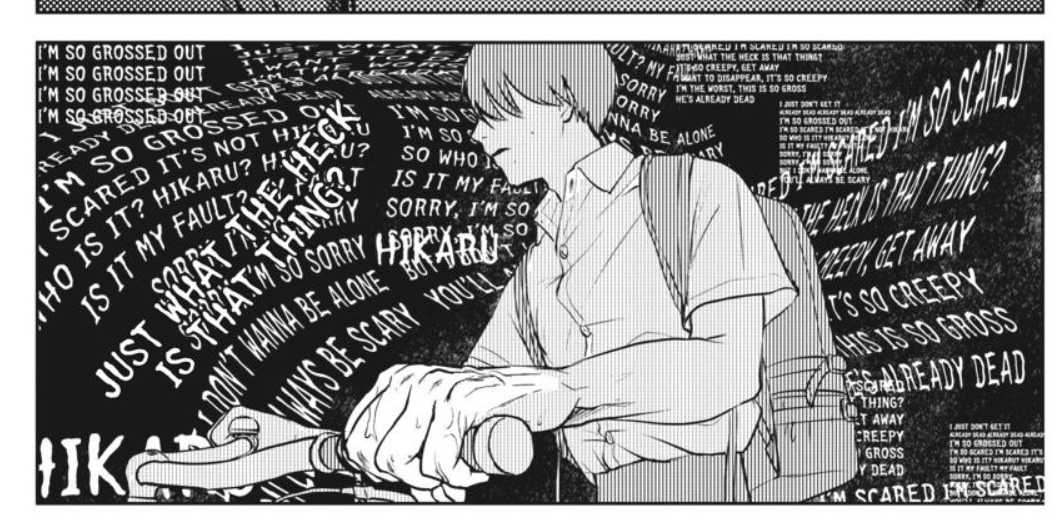







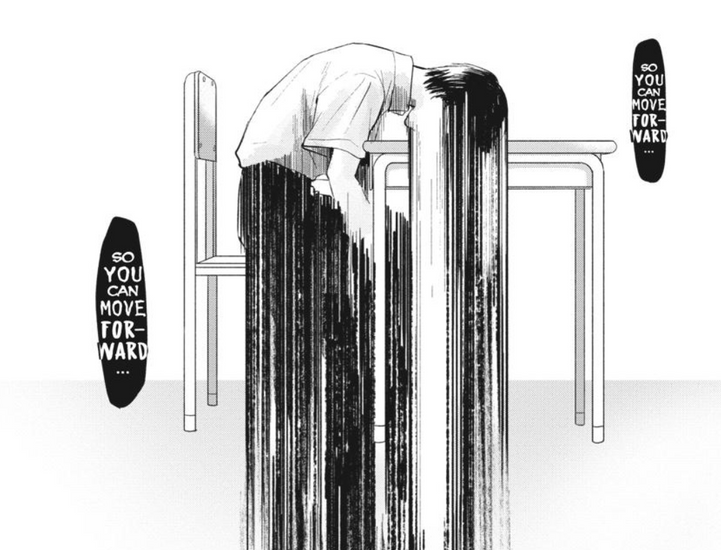



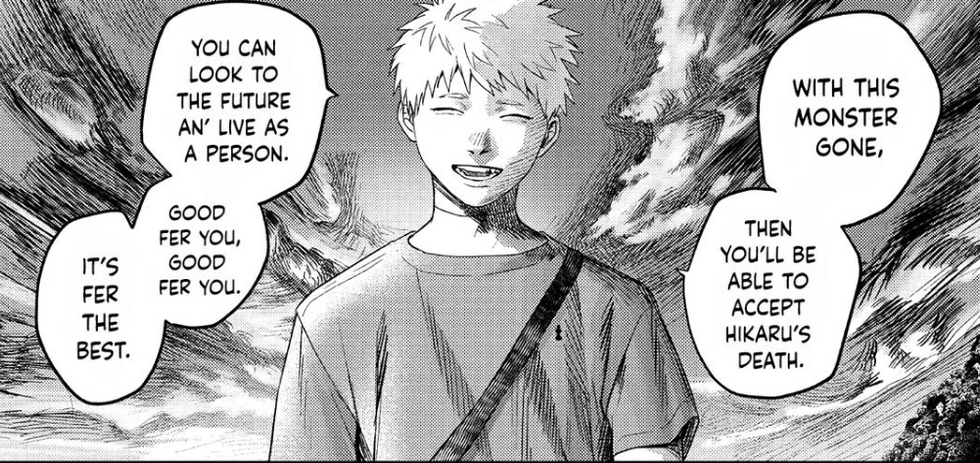









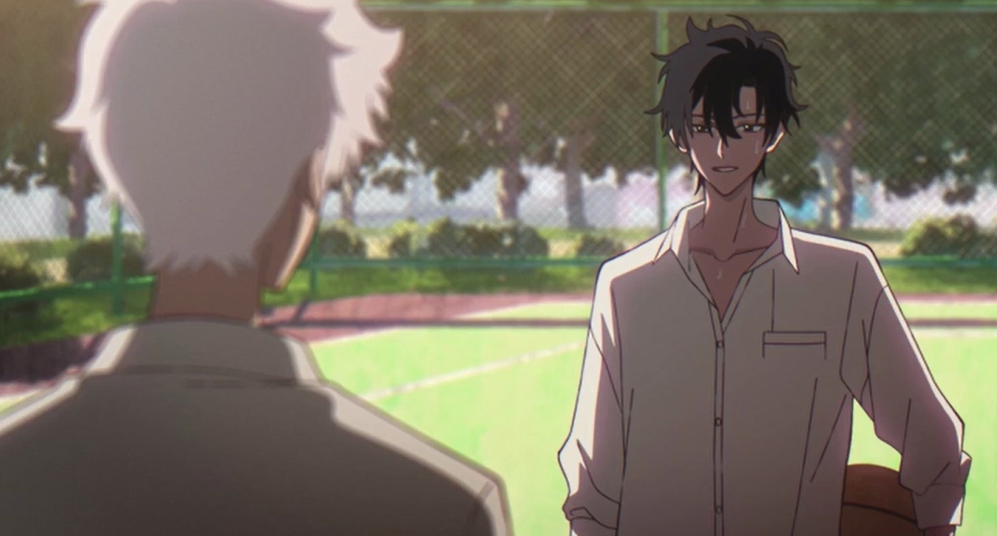

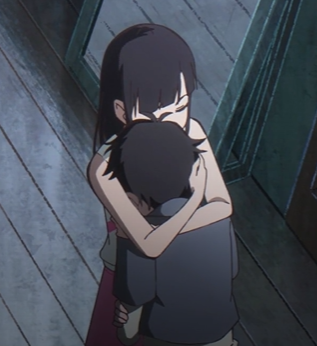

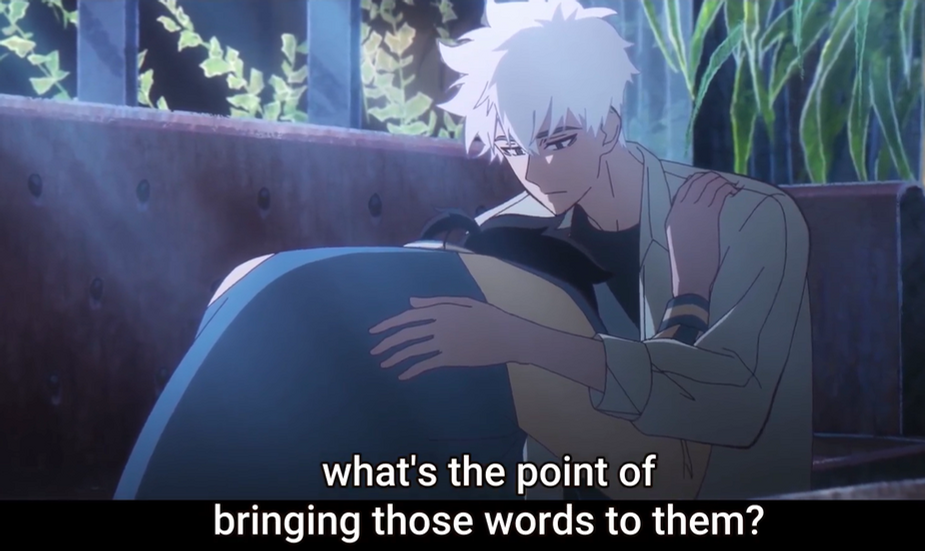







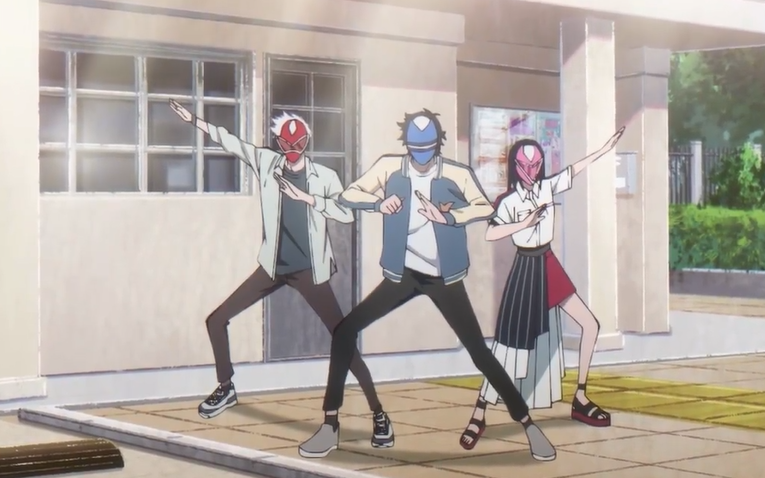





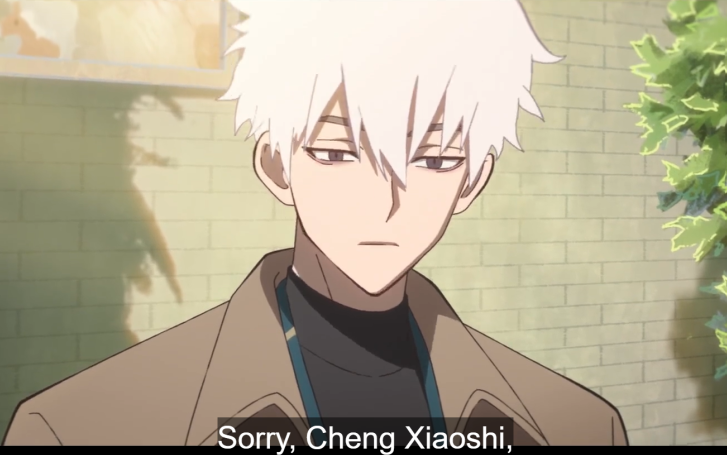

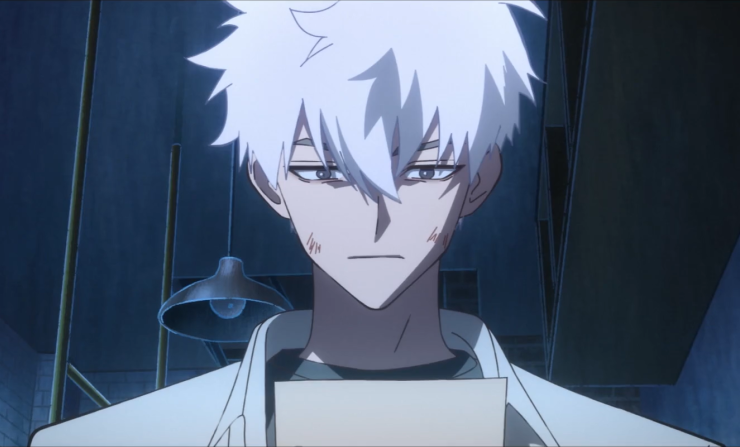

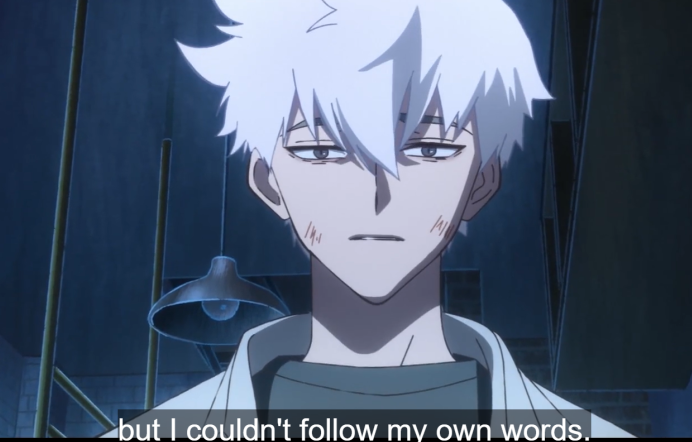

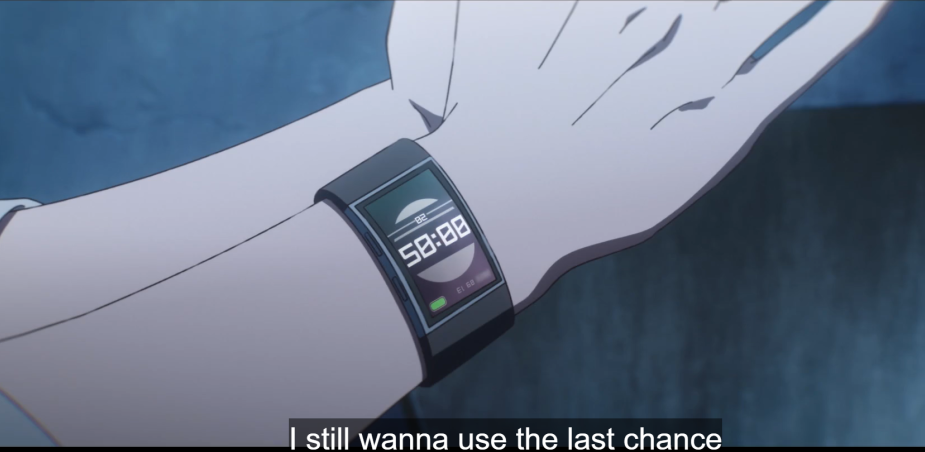

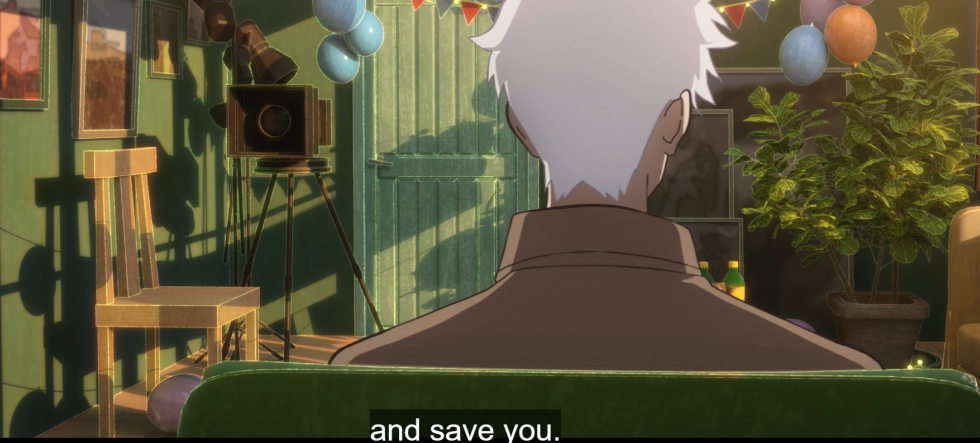


I came from your video essay, that magically landed on my main page, and I liked every part of it. It felt weirdly surreal; from the music choice, your way of reciting, the slow and then suddenly fast pace, the amazing but sometimes too complex sentences and the camera shots, which I liked very much, but don't know the reason why.
It was quite a hard concept for me to grasp, because of the language barrier. I needed to read it multiple times, to be sure I understand the meaning of the words put together.
I like the way you put your thoughts on paper, and as you said, it's hard to express yourself through words, so in some case…